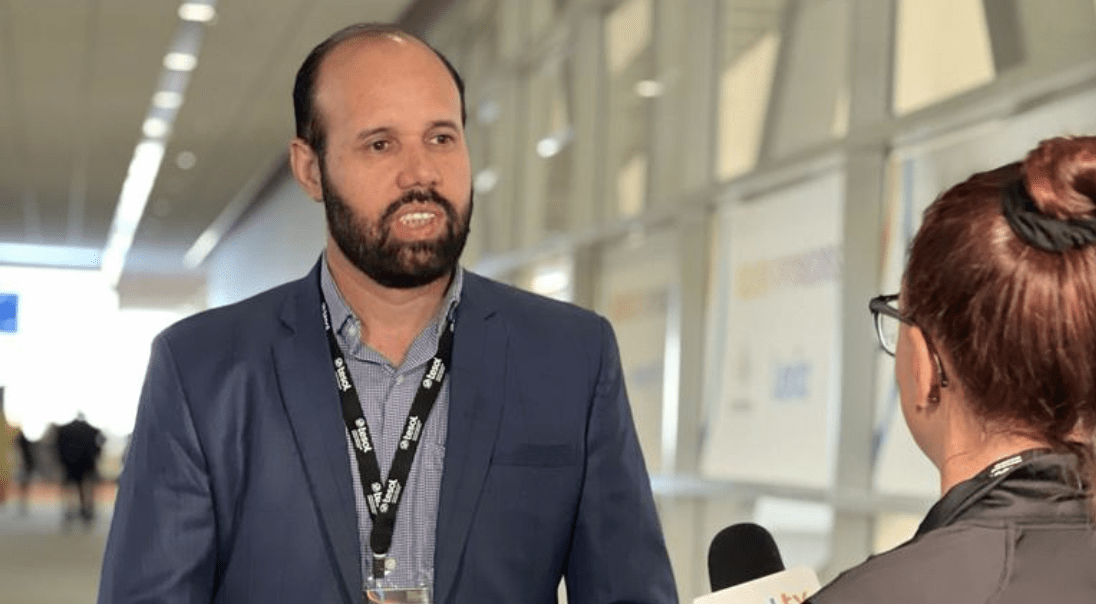
1. For those who may be unfamiliar with you and your work, can you share a little bit about yourself, your research interests at UMD, and the scope of your Fulbright?
I am an associate professor of English language and applied linguistics at Allama Iqbal Open University (AIOU), Islamabad-Pakistan which is the second largest university of South Asia. I also taught in various institutions in Lahore and in the northern part of the country. For my Fulbright, I am focusing on English as language in education policy in multilingual Pakistan.
I am currently analyzing the nature of policies developed, practices and problems involved. In a multilingual country like ours, with a postcolonial background (close to 90 linguistic communities) and a long history of language based political movements—it is an enormous topic with a lot of impact for English language education. As a polyglot of seven languages, and a teacher of English language in an EFL (English as a Foreign Language) setting, I can feel my ethnocentric love for my mother tongue, Pashto, alongside my passion for my profession of teaching English. All of these multilingual feelings made me fall deeply in love with my project and I will work hard to share my findings with other multilingual communities.
2. What inspired you to start this process of becoming a Fulbright participant? What was your process in approaching the application?
I have been a global soul since my first international exchange as a Ph.D. scholar at the University of Newcastle, the United Kingdom in 2011.
I also spent some time in Thailand (in 2012) and Turkey (in 2015) as a short-term exchange scholar. Subsequently, I have been aspiring for the Fulbright fellowship for quite some time mainly because I wanted to fully immerse myself in American culture. So, I started writing applications to various universities in the United States and luckily got an incredibly good response. My exchange experiences and my previous role as a TESOLer (Teaching English as a Second Language) were integral to my acceptance as a Fulbright fellow. In my application process I was in contact with some senior TESOLers who wrote letters of support for me and connected me with some relevant professors. So, it all worked out together in the end.
3. In 2022, the university released their new strategic plan, Fearlessly Forward. One of its core tenets is to take on the world's grand challenges. In what ways does your work contribute to supporting the common good?
My project definitely has a potential for common good not only in Pakistan but also at global level. My work is not only relevant for subverting traditional EFL pedagogy but also decolonizing critical multilingual approaches in the field of English language teaching. Part of my work is also related to the role of teachers as policy makers and going beyond the existing approaches of teaching and learning, challenging assumptions of teaching English in EFL settings. This is an area directly based on maintaining linguistic and cultural diversity in multilingual communities, and promoting social justice through exploring language ecology.
4. What has been the most surprising thing you’ve found in your research and scholarship?
During my stay as a Fulbright fellow in the United States, I have been greatly surprised by two major things. Firstly, drastic similarities between the tribal Pakistani culture and American community culture in some parts of the United States. I have seen how people living in the US are greatly similar to that of our tribal system, specifically the Pueblo houses and the domestic agricultural trends in Taos (New Mexico). That was something strange but very fascinating. My ancestral house in my native country is made of mud and stone and that is identically similar to a pueblo house in Taos - in structure, color and in shape.
Similarly, they put together their home-grown red chilies in a string to dry in exactly the same way my grandmother did it back in Pakistan. Their courtesy and hospitality towards visitors is also remarkably similar to my own folk. Now, what would you call it—strange, surprising, but very lovely—the human substance everywhere is the same!
5. How do you plan to carry forward what you learned and the relationships you formed while abroad?
My Fulbright fellowship has greatly contributed to my professional trajectory in many ways. As an exchange fellow, and I am not only sharing my Pakistani culture with my American colleagues, but I am also learning so many things from American society which I will share with my students and colleagues in Pakistan. On my return, I will be a transformed leader, connected with the international community. My program is not yet finished, so I believe I will be able to create some more connections and gather professional experience!
6. For others that are interested in becoming Fulbright participants, what advice do you have for them?
If you get a chance you must go for it. Start well ahead of time and a starting point should be your visit to the Office of International Affairs at UMD. After your initial work, try for your invitation letter from proposed host institutions and connect with their leadership.
There are some WhatsApp and Facebook groups of Fulbrighters in DC, Maryland and Virginia, and the scholars are so supportive. Contact them as soon as possible!
______
Visit our Fulbright Scholars gallery to meet our fearless scholars engaging with the world. For general program information and application guidance, visit our "How to Fulbright at Maryland" section at the bottom of the page. Interested in applying for your own Fulbright, or want to learn more about the program? Email UMD’s Fulbright U.S. Scholars liaison Scholten@umd.edu.
